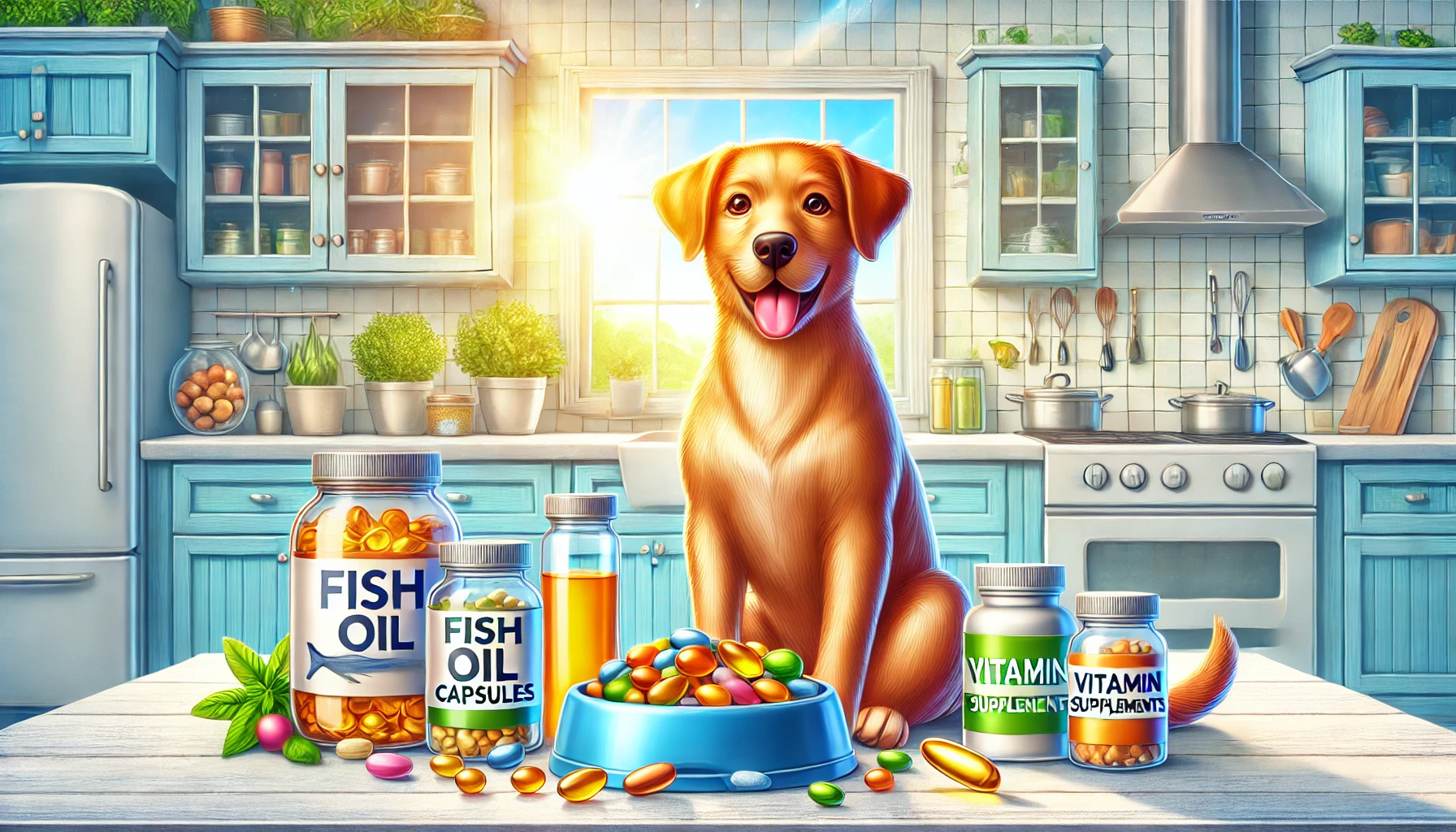Ensuring that your dog gets a balanced and nutritious diet is key to maintaining their health and well-being. While high-quality dog food serves as the primary source of nutrients, supplements can play a vital role in filling any nutritional gaps and addressing specific health concerns. From improving joint health to enhancing skin and coat quality, supplements have become an essential component of many pet care routines.
In this blog, we’ll explore the importance of supplements in your dog’s diet, the types of supplements available, and how to choose the right ones for your furry friend.
Why Do Dogs Need Supplements?
Most commercially available food for dogs is formulated to meet basic nutritional requirements. However, just like humans, dogs may benefit from additional nutrients to address specific health issues or improve their overall vitality. Here are some reasons why supplements may be necessary:
- Breed-Specific Needs: Certain dog breeds are prone to specific health problems. For example, large breeds often require extra joint support.
- Life Stage Requirements: Puppies, senior dogs, and pregnant or nursing dogs have unique nutritional needs that standard diets may not fully meet.
- Medical Conditions: Targeted supplements can benefit dogs with conditions such as arthritis, allergies, or digestive issues.
- Enhancing Overall Wellness: Supplements can help improve your dog’s coat, boost immunity, and promote better digestion.
Types of Dog Food Supplements
There is a wide range of supplements available, each targeting specific aspects of your dog’s health. Here’s a breakdown of the most common types:
1. Joint Support Supplements
These supplements are particularly beneficial for older dogs or breeds prone to joint problems. Key ingredients include:
- Glucosamine and Chondroitin: Help maintain cartilage and joint function.
- Omega-3 Fatty Acids: Reduce inflammation and support joint health.
2. Digestive Health Supplements
A healthy gut is crucial for your dog’s overall well-being. Digestive supplements typically include:
- Probiotics: Promote healthy gut bacteria.
- Prebiotics: Support the growth of good bacteria.
- Enzymes: Aid in breaking down food and improving nutrient absorption.
3. Skin and Coat Supplements
To keep your dog’s skin healthy and their coat shiny, consider:
- Omega-3 and Omega-6 Fatty Acids: Found in fish oil and flaxseed oil.
- Biotin: Supports healthy skin and hair growth.
- Vitamin E: Acts as an antioxidant to improve coat quality.
4. Immune System Boosters
These supplements help strengthen your dog’s immune system to fend off illnesses. Common ingredients include:
- Vitamin C and E: Antioxidants that protect cells from damage.
- Zinc: Essential for immune function.
- Colostrum: A natural immune booster.
5. Calming Supplements
For dogs that experience anxiety or stress, calming supplements can be helpful. These often contain:
- L-Theanine and L-Tryptophan: Amino acids that promote relaxation.
- Chamomile and Valerian Root: Natural calming agents.
6. Weight Management Supplements
For overweight dogs, supplements can support healthy weight loss. Key components include:
- L-Carnitine: Helps in fat metabolism.
- Fiber: Promotes a feeling of fullness.
How to Choose the Right Supplements for Your Dog
Choosing the right supplements can feel overwhelming, given the variety available. Here are some tips to guide you:
1. Consult Your Veterinarian
Before introducing any supplement, discuss your dog’s specific needs with a veterinarian. They can recommend products based on your dog’s health, breed, and age.
2. Look for Quality
Choose supplements from reputable brands that prioritize safety and quality. Look for products with:
- Clear labeling of ingredients.
- Certifications from third-party testing organizations.
- Positive reviews and recommendations.
3. Consider Your Dog’s Diet
Ensure the supplements complement your dog’s current diet. For example, if their dog food already contains omega-3 fatty acids, you may not need an additional fish oil supplement.
4. Start Slowly
Introduce supplements gradually to monitor your dog’s response. Watch for any signs of allergies or adverse reactions.
Benefits of Supplements in Your Dog’s Diet
Supplements can significantly enhance your dog’s quality of life. Here are some benefits you can expect:
- Improved Mobility: Joint supplements can help aging dogs stay active and comfortable.
- Enhanced Digestion: Probiotics and enzymes ensure better nutrient absorption and reduce gastrointestinal issues.
- Healthier Skin and Coat: Omega-3 supplements lead to shinier coats and reduced itching or dryness.
- Boosted Immunity: Antioxidants and vitamins strengthen your dog’s immune system.
- Stress Relief: Calming supplements make travel, thunderstorms, or separation less stressful for your pet.
Common Myths About Dog Supplements
1. My Dog’s Food Is Enough
While high-quality food for dogs provides a solid nutritional foundation, it may not address specific health needs.
2. Supplements Work Immediately
Most supplements take time to show noticeable results. Consistency is key.
3. All Supplements Are Safe
Not all supplements are created equal. Always choose products designed specifically for dogs and avoid human supplements.
Tips for Incorporating Supplements Into Your Dog’s Routine
- Mix with Food: Many supplements come in powder or liquid form, making them easy to mix into your dog’s meals.
- Use Treats: Chewable supplements can double as treats, making them a hassle-free addition to your dog’s diet.
- Stick to a Schedule: Administer supplements at the same time each day for consistency.
Conclusion: A Balanced Approach to Pet Care
Supplements are not a replacement for a well-rounded diet but a valuable addition to your dog’s overall care routine. By addressing specific health needs, they can enhance your pet’s quality of life and ensure they stay happy and healthy.
At KwikPets, we offer a wide selection of pet supplies, including high-quality supplements, to support your dog’s health. Pair these with the best dog food to provide your furry friend with everything they need for a long, vibrant life.
Read More:- Crunch Time: The Right Amount of Dry Food for Your Feline
